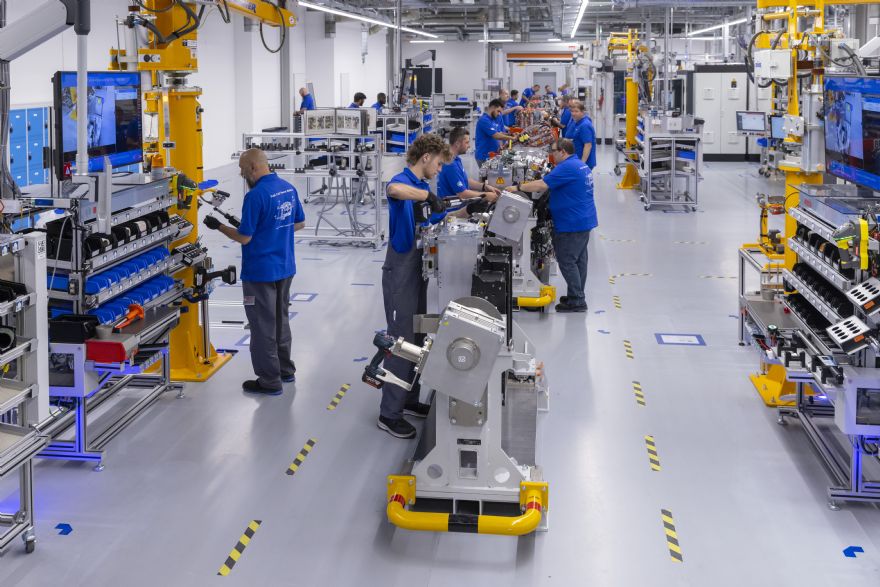
At its Stuttgart-Feuerbach location,
Bosch, a global supplier of technology and services, has begun volume production of its fuel-cell power module. The US company
Nikola Corp will serve as the pilot customer with its Class 8 hydrogen fuel cell electric truck, which is scheduled to enter the North American market in the third quarter of 2023.
Stefan Hartung, the chairman of Robert Bosch GmbH, said: “Here in Stuttgart-Feuerbach, in the plant whose history goes back further than any other Bosch plant, the hydrogen future is about to happen. Bosch knows its way around hydrogen, and Bosch is growing with hydrogen.”
The company operates along the entire hydrogen value chain, developing technology for its production and application; and by 2030 Bosch plans to generate sales of about 5 billion euros with hydrogen technology. In its solutions for the hydrogen economy, Bosch is relying on a global manufacturing network and the prowess of its German locations.
For example, the Bosch plant in Bamberg, Germany, will supply the Feuerbach factory with the fuel-cell stack, while important system components such as the electric air compressor and the recirculation blower will come from the Bosch plant in Homburg, Germany.
Markus Heyn, a Bosch board member and chairman of Bosch Mobility, said: “Bosch is one of the very few companies that are capable of mass-producing technology as complex as fuel-cell stacks. We not only have the required systems expertise but also the capability of quickly scaling up new developments to mass production.”
Moreover, production of the fuel-cell power module is not only starting in Feuerbach but also in Chongqing, China, with the components required coming from the Wuxi plant. Mr Hartung added: “Bosch is the first company to produce these systems in both China and Germany. Moreover, Bosch is also planning to manufacture stacks for mobile applications in its US plant in Anderson, South Carolina; and the company expects that by 2030 — and worldwide — one in five new trucks weighing six tonnes or more will feature a fuel-cell powertrain.
Bosch is ‘strongly advocating’ the establishment of a hydrogen economy, and is stepping up its investments in hydrogen, saying that between 2021 and 2026 the company will have invested nearly 2.5 billion euros in the development and manufacturing of its H
2 technologies — a billion euros more than was earmarked in the investment plan for 2021 to 2024. Moreover, Bosch says the business opportunities for the company are huge, as is the effect on jobs.
Mr Hartung added: “Even now, there are more than 3,000 people at Bosch working on hydrogen technologies, more than half of them in Europe. Most of the vacancies can be filled from within the company, and especially with people who have so far worked in the Bosch powertrain business. However, the further prospects for the hydrogen business depend on the political environment. I especially believe that Europe must do much more to create a counterweight to the rapid pace of developments in other regions of the world, such as the USA.
“First, we have to step up the pace of hydrogen production in the EU; second, global supply chains must be set up; and third, hydrogen has to be used in all sectors of the economy.”
As a fourth point, he stressed the importance of quickly setting up infrastructure to enable the distribution of hydrogen in Europe.